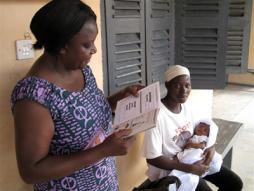Device support is under continuous improvement. Some of the most popular supported devices are: LG: CU400, F2400, KE970 (Shine), KG220, KG320, KG920, M4410, P7200, S5200 Motorola: A780, A910, A1200, C975, E1, E2, E6, E770, E1000, FOMA M1000, I870, L2, L6, L6i, Motokrzr K1, Motorazr V3, Motorazr V3e, Motorazr V3i, Motorazr V3t, Motorazr V3x, Motorazr V3xx, Motorazr maxx V6, Motorizr Z3, Motorokr E1, Motorokr E2, Motorokr E6, Motoslvr L7, PEBL U6, V195, V197, V365, V980, V1050, V1100, Z3 Nokia: 1680 Classic, 2600 Classic, 2610, 2626, 2630, 2855, 2865, 2865i, 3120 Classic, 3152, 3155, 3155i, 3220, 5000, 5070, 5140i, 5200, 5300, 5500, 6020, 6021, 6030, 6060, 6070, 6080, 6085, 6086, 6101, 6102, 6102i, 6103, 6110 Navigator, 6111, 6125, 6126, 6131, 6133, 6136, 6151, 6152, 6155, 6155i, 6165, 6170, 6230, 6230i, 6233, 6234, 6235, 6235i, 6255, 6265, 6265i, 6270, 6275, 6275i, 6280, 6282, 6288, 6290, 6300, 6500 Classic, 6500 Slide, 6630, 6680, 6681, 6682, 6822, 7260, 7270, 7360, 7370, 7373, 7390, 7710, 8800, 8800 Sirocco Edition, 8801, 9300, 9300i, 9500, E50, E60, E61, E61i, E62, E65, E70, N70, N71, N72, N73, N75, N76, N80, N90, N91, N92, N93, N93i, N95, N95 8GB, N3250 Samsung: SGH-D500, SGH-D520, SGH-D600, SGH-D608, SGH-D800, SGH-D820, SGH-D828, SGH-D900, SGH-D900i, SGH-D908, SGH-E250, SGH-E370, SGH-E380, SGH-E388, SGH-E390, SGH-E490, SGH-E500, SGH-E570, SGH-E730, SGH-E760, SGH-E770, SGH-E780, SGH-E788, SGH-E810, SGH-E830, SGH-E870, SGH-E898, SGH-E900, SGH-G600, SGH-J700V, SGH-J750, SGH-P300, SGH-P310, SGH-P858, SGH-T509, SGH-T619, SGH-T709, SGH-T809, SGH-U700, SGH-X700, SGH-X708, SGH-X820, SGH-7400, SGH-Z540, SGH-Z560, SGH-Z720, SGH-ZM60, Z130 Siemens: C65, C75, CX65, M65, S65, SK65, SL65, ST60, SXG75 Sony Ericsson: D750, F500, F500i, J300, K300, K310, K320, K320i, K500, K500c, K500i, K510, K600, K608, K610, K700, K700c, K700i, K750, K790, K800, K800i, K800iv, M600, Mylo, P990i, S700, S700c, S700i, V600, C630, V800, V802, W300, W550, W600, W710, W710i, W800, W800i, W810, W810i, W830, W830i, W850, W850i, W880iv, W900, W900i, W950i, Z1010, Z300, Z300a, Z500, Z500a, Z500i, Z520, Z525, Z530, Z710, Z800 Application requires J2ME, MIDP2.0+, WAP2.0+, CLDC1.1+, max JAR size > 130 KB. Min heap size dependent on survey length and complexity.


